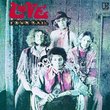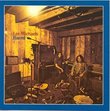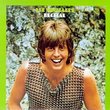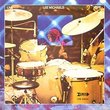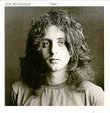| All Artists: Lee Michaels Title: Carnival of Life Members Wishing: 5 Total Copies: 0 Label: One Way Records Inc Release Date: 3/19/1996 Genres: Pop, R&B, Rock, Classic Rock, Metal Styles: Oldies, Soul, Psychedelic Rock Number of Discs: 1 SwapaCD Credits: 1 UPC: 046633364027 |
Search - Lee Michaels :: Carnival of Life
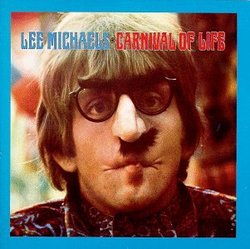 | Lee Michaels Carnival of Life Genres: Pop, R&B, Rock, Classic Rock, Metal
First time on CD for this digitally remastered reissue of the 1968 debut album from Lee Michaels. This album is an excellent example of California Psych-Pop with inventive organ and harpsichord parts, Michaels' superb voca... more » |
Larger Image |
CD DetailsSynopsis
Album Description First time on CD for this digitally remastered reissue of the 1968 debut album from Lee Michaels. This album is an excellent example of California Psych-Pop with inventive organ and harpsichord parts, Michaels' superb vocals, and Hamilton Wesley Watt's (of Euphoria) blistering guitar cutting through the mix. A quirky start to what would be a fine and innovative career , and a fine and timeless album in it's own right, Rev-Ola. 2006. Similar CDs
|
CD ReviewsThe VERY BEST Lee Michaels ever R. Lindeboom | Paso Robles, CA USA | 06/10/2000 (5 out of 5 stars) "In 1968 when this album was issued originally, there was little 'elegance' in rock music. Sure, the Moody Blues had released their first two Hayward-influenced classics and there were some folkie projects out there -- but no one was doing what Lee Michaels did on this project! This is one of the top 'if I were stranded on a desert island' albums of all time. This is one of a handful of albums that reflect the most musical offerings of the psychedelic era of music in the late Sixties. Love's 'Forever Changes', the Moody's 'Days of Future Passed' and Lee Michaels' 'Carnival of Life' are best of class offerings from this period. The opening cut, 'Hello', still screams as one of the best hard rock offerings ever recorded. 'Streetcar' and 'Tomorrow' still have the plaintive and fervent cry that they had back in 1968. The radio missed this one for the most part and never caught up to Lee until his third release, the self-titled album which lacks most all of the musical embellishments that make this recording such a masterwork. I once saw Lee live with his original band -- and saw him in the Lee & Frosty period many times. There was no comparison between the two as his full band was phenomenal; they even held their own against the original member line-up of Procol Harum, whose Matthew Fisher organwork on 'Whiter Shade of Pale' is a true rock classic. Lee & Band were that good. Too bad the radio and rock history overlooked him then and has largely forgotten him now..." A highly underrated true classic Lawrence A. Strid | 05/06/1999 (5 out of 5 stars) "This was Lee Michaels' first album, issued as A&M SP 4140 back in 1968. It's a psychedelic joy ride from start to finish; one of those rare albums where the tunes fit together perfectly. It's different from his later records, because there's greater emphasis on guitar work than solo keyboard. But that doesn't affect the quality one bit. My favorites: "Streetcar" and "Sounding the Sleeping." Many thanks to One-Way for a fine job reissuing the Michaels catalog." A Psychedelic Rock Classic Lawrence A. Strid | Mission Viejo, CA | 10/24/2004 (5 out of 5 stars) "It's funny how some artists never top their debut effort, and Lee Michaels, despite some later quality output, never outdid this release, his first album. The songwriting, production, playing, and sound quality is first rate, with one of the studio musicians being the phenomenal guitarist Hamilton Watt (whatever happened to this guy?). This album is a classic that never fails to thrill and entertain with repeated listeinings, especially on the tracks "Hello" (check out Watts' over the top licks on this track), the haunting "Sound of The Sleeping", "Love" (some of Lee's best singing here), and "My Friends" (great lyrics, drug referenced as are some of the other tracks). Lee kind of burned out after 6 or so albums, supposedly suffering from tinnitus which prevented him from playing the Hammond Organ in live venues anymore (I saw him live at the Shrine in L.A. in the mid-seventies, and a riot ensued because he only played the grand piano with a back-up drummer, which the crowd did not appreciate). He disappeared from the music scene thereafter, and I understand that he moved to Hawaii and dropped out of the music scene. We miss you, Lee. Thanks for the music."
|

 Track Listings (9) - Disc #1
Track Listings (9) - Disc #1